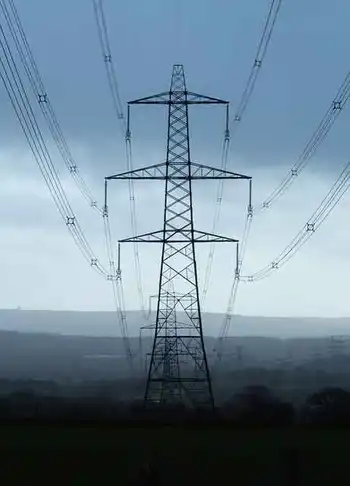Slaughterhouse workers used “excessive shocking”
By Associated Press
Protective Relay Training - Basic
Our customized live online or in‑person group training can be delivered to your staff at your location.

- Live Online
- 12 hours Instructor-led
- Group Training Available
The state Attorney General's office issued arrest warrants for Christopher Gaudette, 37, and Frank Perretta, 51, both of Grand Isle.
The charges stem from revelations last November at the Bushway Packing Inc. slaughterhouse in Grand Isle, where hidden-camera video taken by the Humane Society of the United States showed days-old calves being dragged, kicked and shocked as they were loaded off a truck and taken to slaughter.
Both Gaudette and Perretta, one of Bushway's corporate directors, remained at large and neither could be reached for comment. A telephone listed as belonging to a Chris Gaudette in Grand Isle was no longer in service and a phone listing for Perretta could not be found.
U.S. Department of Agriculture regulations permit the use of prods, but only as "little as possible in order to minimize excitement and injury."
Gaudette and Perretta engaged in more than that, according to an affidavit filed by attorney general's investigator Darrin Barber.
According to the affidavit:
The Humane Society, which had received a hotline complaint about inhumane handling of the animals at Bushway, hired independent contractor Jason Smith, who had done undercover work for similar organizations before.
Smith conducted a six-week undercover operation at Bushway Packing after being hired to be a worker. The one-hour video he produced contained 33 scenes of the "handling and inspection" of the calves, 16 of which were deemed to show inhumane treatment of animals, according to USDA veterinarian Dr. Ata Chaudhry, who reviewed it.
In a video shot by Smith on September 15, 2009, Gaudette is seen shocking a downed calf 11 times until it gets up. He then shocks it five more times before kicking it, pouring water on its head — to enhance the electrical current — and shocking it seven more times, which Chaudhry called excessive.
Perretta, secretary of the company and one of its corporate directors, was shown the videotape by USDA inspectors and said he would never condone the behavior Gaudette had engaged in, telling them he would banish Gaudette from the barns. But he, too, was cited for excessive shocking of a calf, and for kneeing another animal in the backside. He engaged in "egregious inhumane handling," according to Chaudhry.
The charges were filed in Grand Isle County after an investigation by the USDA, according to Vermont prosecutor Cindy Maguire. She said such charges had never been filed in Vermont in a slaughterhouse case before.
"The fact that we've filed charges speaks to the import of the case," she said.
The slaughterhouse, which has since been closed, specialized in "bob veal calves," or those less than a month old, up to 800 a week of which were slaughtered and sent to market as whole carcasses.
The abuse was called "inexcusable" by U.S. Agriculture Secretary Tom Vilsack last year. It led to the closing of Bushway Packing and calls for closer regulation of animal handling.
Ultimately, the state Legislature passed a bill creating a Livestock Care Standards Advisory Council. The bill also allows the state to deny a commercial slaughter license to people convicted of animal cruelty.
Gaudette is charged with felony aggravated cruelty to animals and two counts of cruelty, a misdemeanor Perretta is charged with one count of cruelty. The misdemeanor is punishable by up to 1 year in prison and $2,000 in fines. If convicted of the felony, Gaudette could face three years and $5,000 fines on each count.











